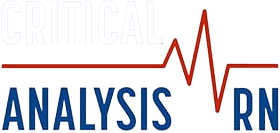Forensic nursing, a field that combines clinical nursing practice with the judicial system, often exposes nurses to unique ethical challenges. These professionals not only provide care to victims of crimes and accidents but also play a crucial role in collecting evidence and providing testimony that may be used in court. The dual responsibilities to their patients and the law can sometimes create significant ethical dilemmas. This article explores the ethical challenges forensic nurses face and discusses how they maintain professional integrity amidst these complexities.
Dual Loyalty
One of the primary ethical dilemmas faced by forensic nurses is the conflict between their duty to care for patients and their role in the justice system. Nurses are trained to put the health and well-being of their patients first. However, in forensic nursing, they must also gather evidence properly, which might sometimes feel intrusive to the patient or seem to conflict with their immediate health needs. Balancing these duties requires a deep understanding of both ethical nursing practices and legal requirements.
Informed Consent
Obtaining informed consent is another significant ethical challenge in forensic nursing. Patients must be fully aware of the procedures they will undergo, not only for medical treatment but also for evidence collection that may affect the legal process. This becomes even more complex when dealing with victims who are minors, mentally incapacitated, or severely traumatized. Forensic nurses must navigate these situations carefully, ensuring that consent is obtained in a manner that is both legally sound and ethically correct.
Confidentiality and Privacy
Maintaining patient confidentiality while fulfilling legal obligations can also pose ethical dilemmas. Forensic nurses often have access to sensitive information that could impact a legal case. Deciding what information needs to be shared with law enforcement and what should remain confidential to protect the patient’s privacy requires careful ethical consideration. Nurses must adhere to strict protocols that respect patient privacy while also ensuring that justice is served.
Dealing with Non-adherence
Forensic nurses sometimes encounter situations where patients refuse necessary medical examinations or evidence collection procedures that could help their case or assist in a broader investigation. Respecting a patient’s autonomy while trying to persuade them of the importance of these procedures for their health and for justice can be ethically challenging. Nurses must navigate these situations by providing patients with clear, compassionate communication about the consequences of non-adherence without coercing them into consent.
Bias and Impartiality
Maintaining impartiality is crucial in forensic nursing. Nurses must ensure that their care and the collection of evidence are not influenced by personal beliefs or biases about a patient’s situation or background. This is particularly important in cases involving violence or abuse, where societal and personal prejudices can inadvertently affect professional judgement. Regular training and reflection are essential for nurses to recognize and manage their biases.
Resource Allocation
Forensic nursing often requires specific resources, such as time for thorough examinations and special equipment for collecting and preserving evidence. However, resources in healthcare settings are typically limited. Prioritizing these resources can lead to ethical dilemmas, particularly when forensic needs conflict with other patient care requirements. Nurses must make judicious decisions about resource allocation to ensure that all patients receive appropriate care.
Handling Suspected Criminal Activity
Forensic nurses may also face ethical dilemmas when they suspect a patient may have been involved in criminal activity. Determining when and how to report such suspicions to authorities, especially if the patient is under their care, requires careful ethical judgement. The nurse must balance legal obligations and the potential risk to the community against patient confidentiality and trust.
Maintaining Professional Integrity
To navigate these ethical dilemmas, forensic nurses rely on a strong foundation of ethical principles and guidelines provided by professional nursing organizations. Ongoing education and training in ethics are crucial, as is support from colleagues and the wider medical and legal communities. Many forensic nurses also engage in peer discussions and ethical review boards to ensure their practices align with both medical ethics and legal standards.
The Bottom Line
Forensic nurses are often required to make tough decisions that can have significant implications for their patients and for legal outcomes. The ethical challenges they face are diverse and complex, requiring a careful balance of empathy, legal awareness, and professional integrity. By adhering to established ethical standards and seeking continuous professional development, forensic nurses can navigate these grey areas effectively, ensuring that they provide the highest standard of care while upholding the tenets of justice.
Would you like to discuss your case? Just give me a call at (432) 661-3639 or email me today!
